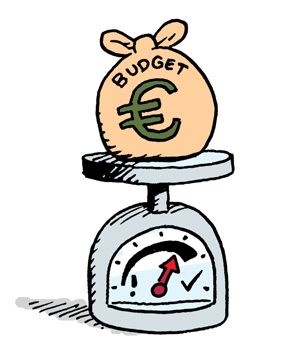Time to put fairness at heart of budget policy

Fairness must be at the centre of Budget 2026. We are wealthier than at any time in our history, and yet almost 630,000 people are living below the poverty line, 190,000 of whom are children. Over 15,500 people are in emergency homeless accommodation. Now is the time for Government to show ambition in delivering on its promises by running a progressive budget, properly funding public services and infrastructure and investing in policies that will make a positive difference to people and communities.
Programme for Government and Budget 2026
Government must use Budget 2026 to deliver on the commitment to progressive budgets in 'Securing Ireland's Future'. This requires benchmarking social welfare rates to average earnings; progressive taxation policies and measures in a fair tax system and investment of windfall revenues in our social infrastructure to deliver social and affordable homes, upgrade our water and energy infrastructure to support housing delivery and our energy transformation
Fiscal Context for Budget 2026
Budget 2026 is set against a backdrop of global trade uncertainty. However, Ireland is in a strong economic position despite this instability, with strong GDP and GNI* figures and a strong labour market performance. We must use the resources generated by our strong economic performance in recent years to address longstanding social and infrastructural challenges. In Budget 2026, through appropriate and ambitious investment of windfall revenues, and the adoption recurring taxation and expenditure measures which prioritise fairness and protection of the vulnerable, Government can begin to deliver on its promise to fund adequate levels of current and capital expenditure growth to meet the needs of our growing population and its commitment to increase public sector investment to address infrastructural deficits.
Fiscal context:
- Government running a large budget surplus driven by short-term revenue linked to full-employment, consumption linked to short-term cost of living supports and income tax cuts, and windfall revenue from a small number of multi-national companies in the pharma and tech sector.
- Removing the expected windfall revenues from corporation tax, the underlying budget position is one where the state is expected to record a significant budget deficit of €4.6bn in 2025 and almost €6.8bn in 2026. The unsustainability of this position is of major concern; at a time of full-employment, strong consumption and continued economic growth, the existence of a underlying budget deficit raises major questions.
At a minimum, in Budget 2026 Government should:
- Outline a medium-term plan of one-off investments in our social and physical infrastructure funded from one-off windfall corporate taxation revenues.
- Adopt recurring taxation and expenditure measures which prioritise the protection of the most vulnerable groups in our society while addressing the unsustainability of current fiscal policy approaches.
- Set a new tax take target on a per capita basis as a first step towards planning for a sustainable tax take and developing a broad tax base.
Vulnerable Groups
Essential to the delivery of progressive budgets is a commitment to the principle of benchmarking core social welfare rates to average earnings. It also requires progressive taxation policies and measures in a fair tax system where those who have more pay more, while those who have less pay less. Unfortunately, looking at permanent changes in taxation and welfare over the period 2020-2025, budgetary policy has reduced the gap between households in the bottom and middle of the income distribution while opening a greater gap between them and households on the highest incomes. The deterioration in the relative standing of low and middle income households presents a troubling picture. Reversing these growing income gaps must inform Budget 2026.
- Budget 2026 should increase minimum social welfare rates by €25 per week. This is the increase required to benchmark welfare rates to average earnings. It is even more critical in light of sharp increases to essentials such as rent, energy and heating costs. Even with falling rates of inflation, prices will remain high placing real pressures on household budgets. Recent Budgets have focused on temporary measures. What is needed is certainty and permanence for those reliant on social transfers.
- In addition, the rate of jobseekers for those aged between 18 and 24 (not living independently) is currently inadequate to meet even the most basic of needs and must be increased to the full adult rate.
- Introduce a cost of disability allowance at €20 a week at in Budget 2026 which should be built upon in subsequent Budgets. This will support Government in addressing the high rates of poverty and deprivation experienced by people with a disability and delivery on its Programme for Government commitment to this group.
- Increase the Domiciliary Care Allowance to €385 per month and pilot a Universal Basic Services and a Universal Basic Income Scheme for Carers in line with the Programme for Government Commitment to a Carers Guarantee.
- Increase child benefit by €50 and increase Child Support Payments for those under 12 by €6 a week and €15 for those aged 12 and over.
- Universalise the State Pension (contributory and non-contributory) and increase the rate by €25 per week and increase the Living Alone Allowance by €10 a week.
- Increase the fuel allowance by €10 per month and extend it Working Family Payment recipients.
- Introduce a system of refundable tax credits to make the tax system fairer for low income workers and increase the PAYE and Personal tax credits by €5 per week.
- Fully implement a Living Wage in Budget 2026.